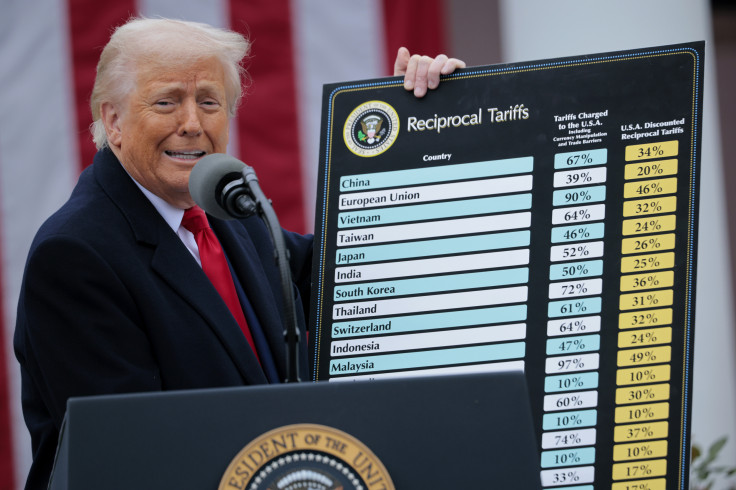Economist Warns Unemployment Could Fall to 'Recessionary Levels' If Trump Continues Tariff Rollout
One company, Stellantis, has already temporarily laid off 900 employees in response to the tariffs

President Donald Trump's sweeping new tariffs could drive unemployment to recession-like levels by the end of 2025, economists warn, as companies brace for rising costs and potential job cuts.
On April 2, Trump unveiled a global tariff expansion that included a flat 10% tariff on imports from all countries, with even steeper rates targeting major trade partners like China, India and the European Union, according to CNBC.
The move added to an already growing list of protectionist trade policies under his administration. Tariffs, which are paid by importers, raise the cost of doing business—costs that often get passed down to consumers or offset by cutting jobs.
The announcement immediately rattled financial markets, with the S&P 500 dropping nearly 19% from its February peak by early April. On April 3, Stellantis temporarily laid off 900 employees in response to the tariffs, signaling the beginning of what economists expect to be a wave of layoffs.
Additionally, it's reported that 37% of CEOs anticipate cutting jobs this year. According to Yale's Budget Lab, these tariffs could shrink GDP growth by 1 percentage point and push unemployment from 4.2% to 4.7%—an increase affecting roughly 500,000 workers.
"If the president does not reverse course, he will increase the unemployment rate to recessionary levels," Michael Strain, Georgetown University professor and the American Enterprise Institute's director of economic policy studies, told CNBC.
Some experts, like Georgetown's Harry Holzer, warn the real toll could reach into the millions, especially in manufacturing, retail, agriculture and wholesale sectors.
Despite modest job gains in industries that produce goods domestically, economists across the political spectrum agree the net effect will be job losses. That's largely because nearly half of the content in American-made products still relies on imported materials.
The chaotic and unpredictable rollout of the tariffs has further destabilized business confidence, making it harder for employers to plan, invest or hire.
Looking ahead, experts expect ongoing volatility in the job market and broader economy as companies adjust to higher costs and possible retaliatory tariffs from foreign governments. Labor force participation could shrink by 200,000 to 300,000 people annually due to these policies.
Originally published on Latin Times
© Latin Times. All rights reserved. Do not reproduce without permission.




















